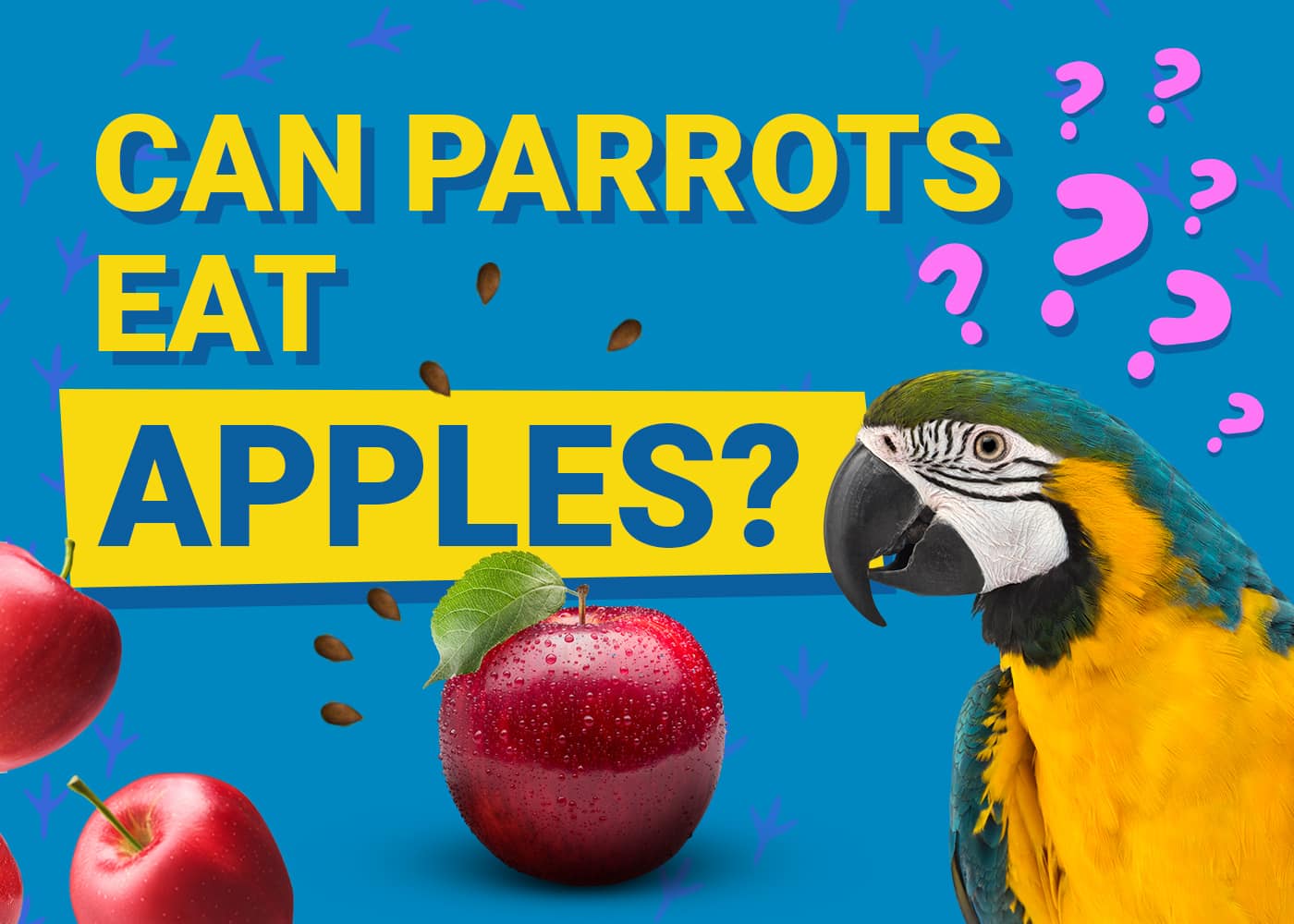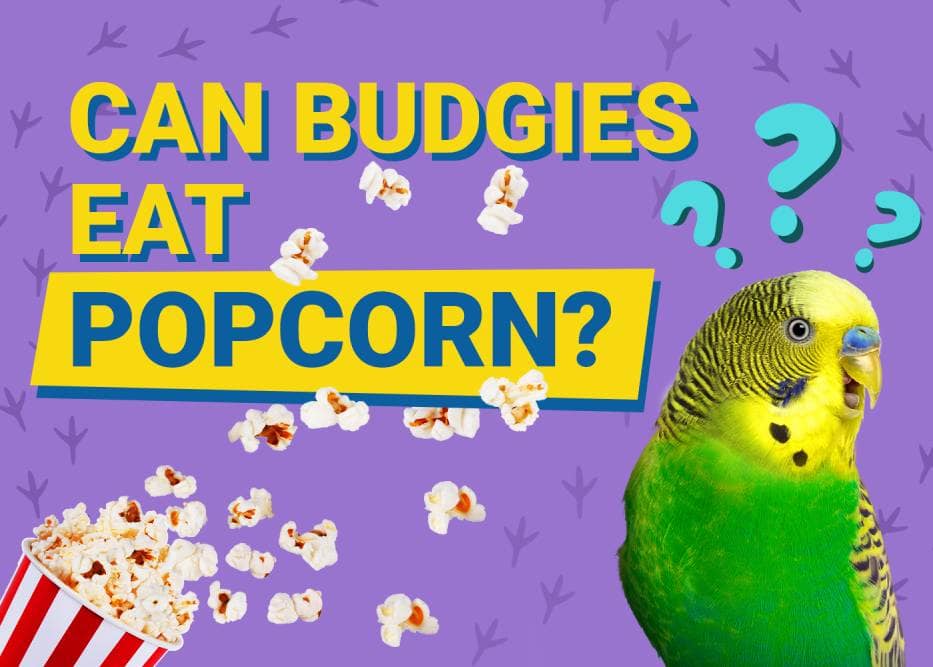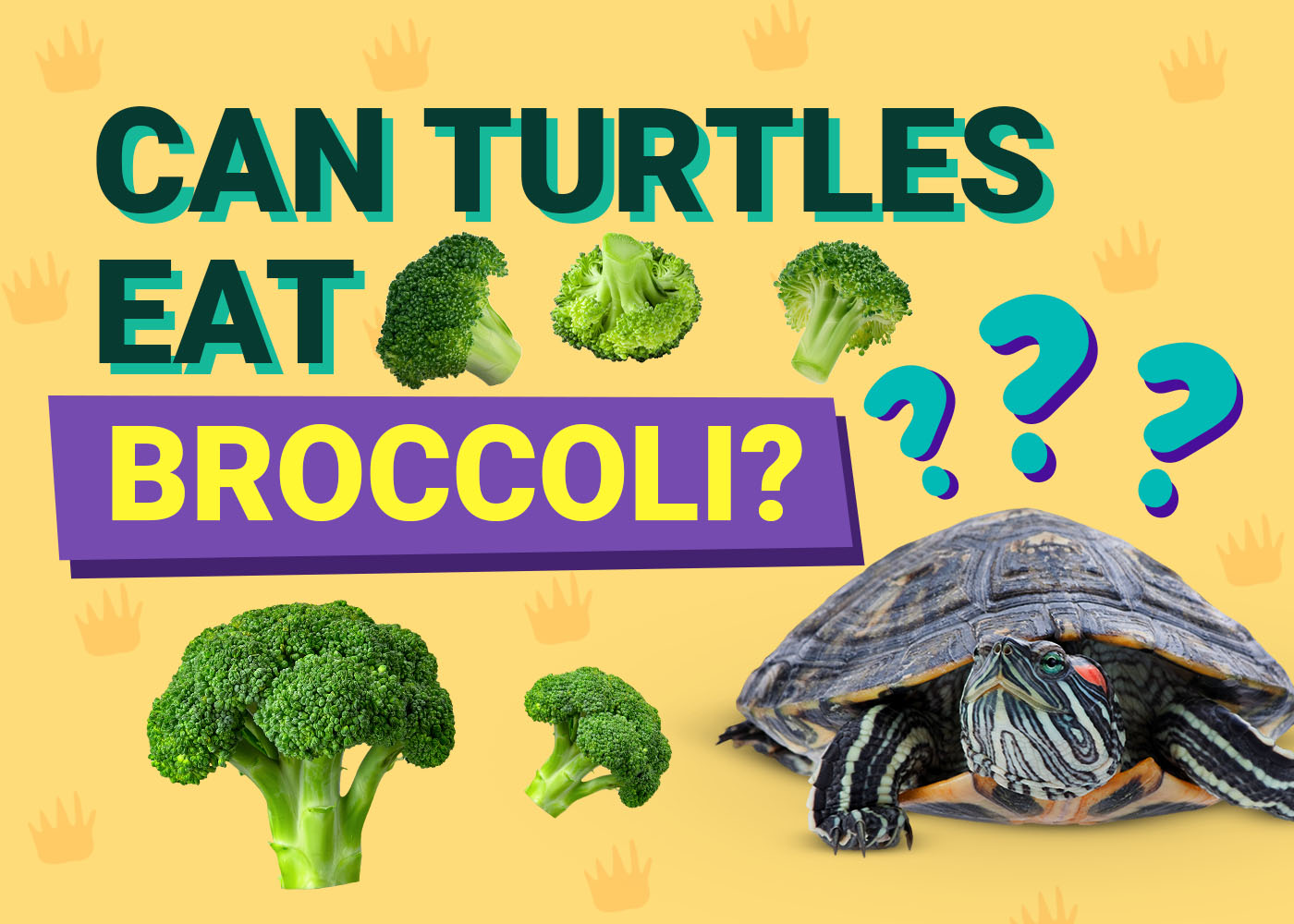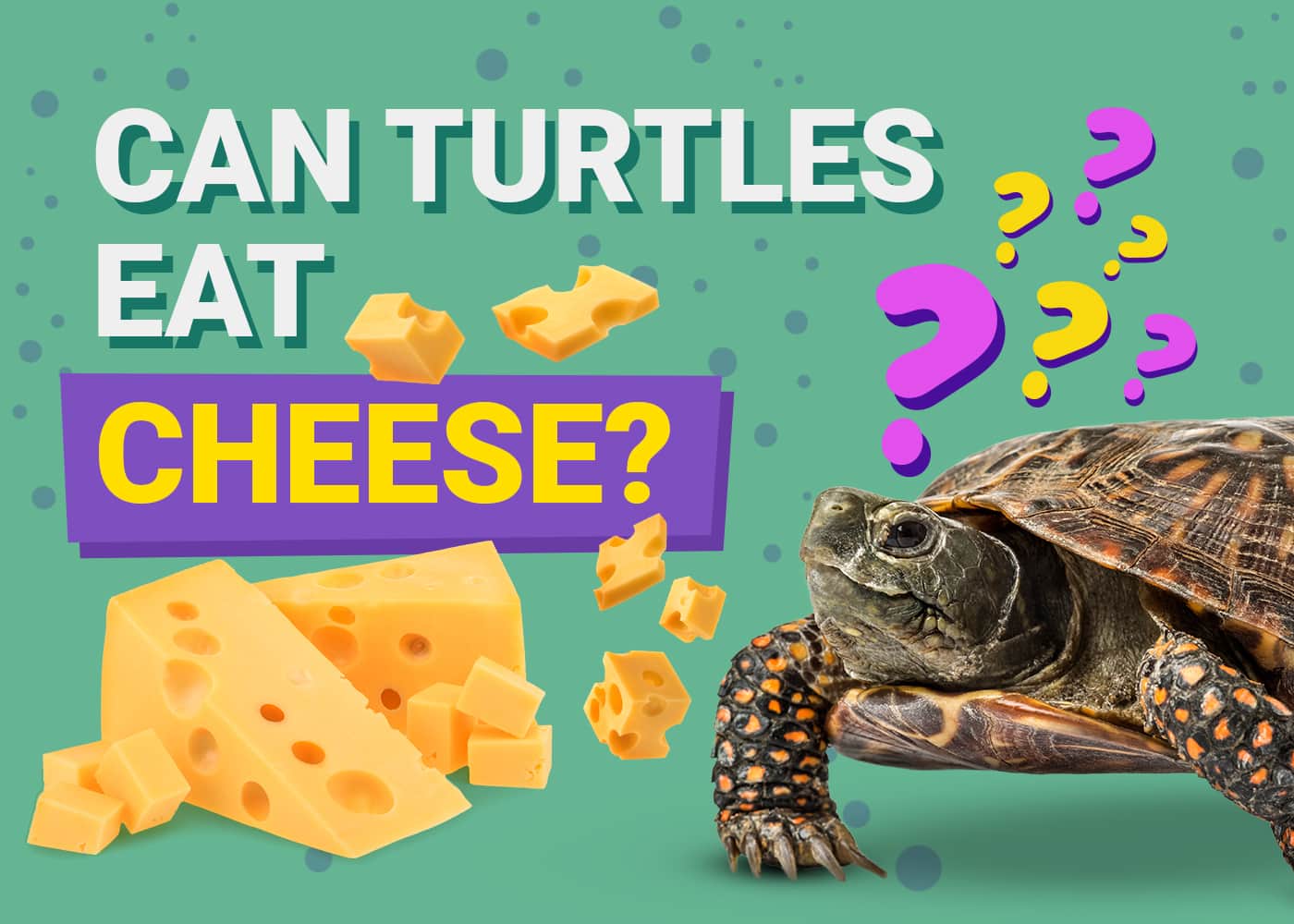VET APPROVED

The information is current and up-to-date in accordance with the latest veterinarian research.
Learn more »Click to Skip Ahead
Over 400 species of birds belong to the parrot order Psittaciformes, and many of these are kept as pets. Certain popular parrot species are native to the tropics, where they favor humid forests and eat a variety of leaves, blossoms, seeds, and of course, fruit. Not all foods are good for parrots, though, and it’s important to know which ones are suitable for your pet.
Many owners know how much their parrots enjoy fruit, but what about apples? Can parrots eat apples?
Yes! Parrots can definitely eat apples, but you should know that fruit should not make up the majority of their diet. Apples should be occasional treats only, as there are possible negative consequences. In this article, we look at the potential health benefits of giving apples to your parrots and concerns to be aware of. Let’s get started!

The 5 Health Benefits of Feeding Apples to Parrots
Apples are delicious treats that your parrot will likely love, and they have potential health benefits too. Do keep in mind, though, that fruit should typically only comprise a small (5%) portion of your parrot’s diet in most circumstances. As such, you need to consider the benefits of apples in the context of them not forming a majority of your pet’s meals.
Potential health benefits of apples include the following.
1. Vitamin A
Apples contain vitamin A, which is needed for several important functions in parrots, including eye health and the general growth and repair of body tissues. It can also play a role in the health and vibrance of your parrot’s feathers.
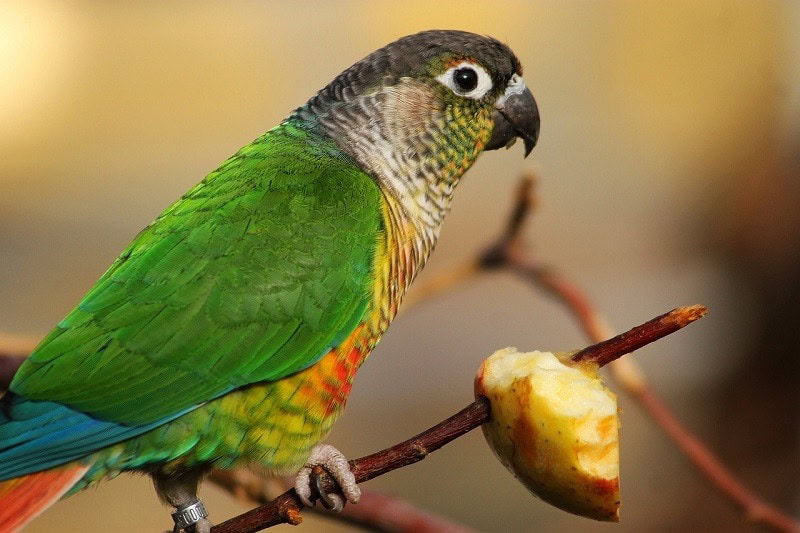
2. Vitamin C
Apples do contain vitamin C, and while parrots don’t need this vitamin in their diet because unlike us, their bodies can produce it, it is a great immune booster if your bird is ill or has any liver issues. Vitamin C is also an excellent antioxidant and may aid the gut absorption of important minerals.
3. Potassium
Potassium is the principal mineral in apples and is required in your parrot’s diet for glucose and protein metabolism, and it is essential for a healthy nervous system. Although no mineral can be evaluated on its own in a parrot’s diet (as they all play off each other), apples do have a respectable amount of potassium.
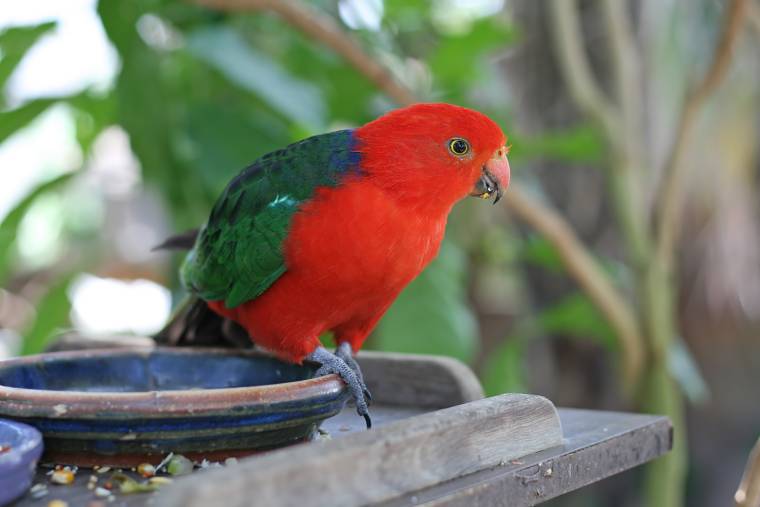
4. Energy
Like most fruits, a good portion of an apple’s non-water macronutrient content is carbohydrates (mostly in the form of naturally occurring sugars). This does provide your pet with energy/calories. However, the high amount of sugars in apples (and other fruits) is also what ends up being their greatest drawback for pet parrots.
5. Water
Apples are around 86% water, so they can be a great additional source of hydration for your parrot.
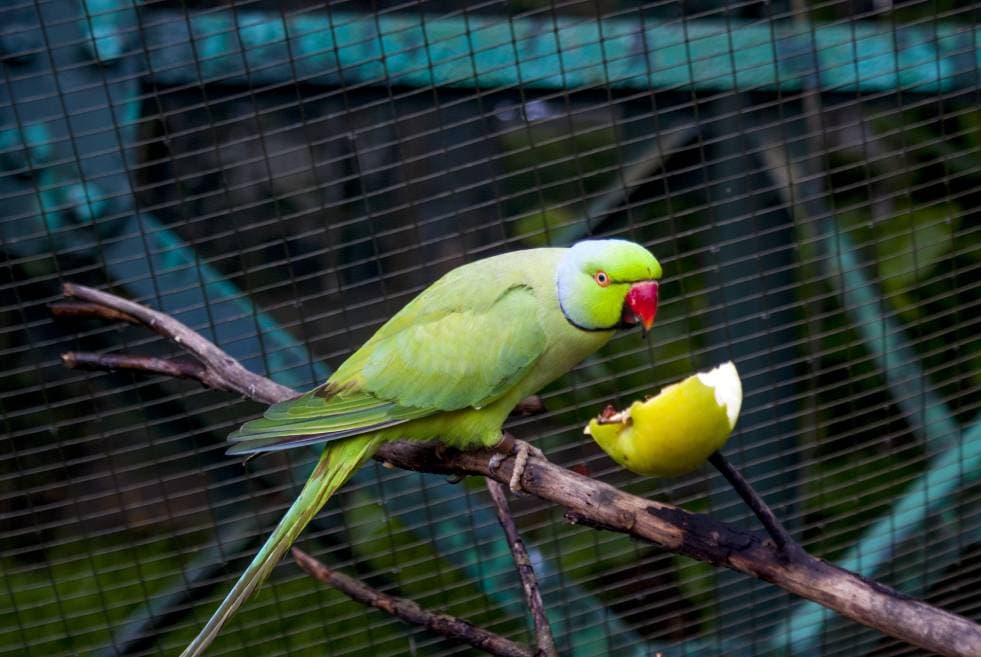

Potential Concerns of Feeding Apples to Your Parrot
“An apple a day keeps the doctor away,” as the old saying goes, but too much of a good thing can quickly make it not so good. Apples should only be fed in moderation for several reasons. The biggest concern is the high sugar content that they contain. Along with the high water content, this can deprive your parrot of other essential nutrients and potentially cause obesity.
While the skin of apples is not inherently bad for your parrot, there are pesticides used in apple farming, which even if you wash the apples may potentially harm your parrot. It’s best to serve peeled apples, just to be safe.
Another major concern is the seeds, which contain trace amounts of cyanide. This may be not of much concern in small amounts, but they still aren’t recommended for parrots. That said, no reports of toxicity of apple seeds exist for these birds. This could be because parrots often tend to swallow apple seeds whole, and the cyanide is only released if the seed is crushed. This would also explain why parrots are such excellent natural seed dispersers in the wild.
In addition, many wild avian species readily consume apple seeds and other apparently toxic plants, fruits, and seeds with no detrimental effects. The exact mechanisms of their apparent immunity to these foods is still being investigated.
Ultimately, if your parrot eats one or two apple seeds, they will most likely be fine, but it’s far better to be safe than sorry, so you should prevent them from eating the seeds altogether.
How Much Apple Should You Feed Your Parrot?
Parrots love fruit, particularly apples, so it’s tempting to give them as much as they want. Moderation is key, though, as too much apple—or any other fruit, for that matter—can quickly become problematic.
Fruit should make up no more than 10% of your parrot’s daily diet, though around 5% is ideal. This should also consist of a wide variety of fruit, so apples should not be offered on a daily basis.
How much apple to give your parrot depends on the size of your parrot, as large species will naturally be able to eat more. However, a good rule of thumb is a few small, sliced chunks of a skinned, seedless apple once or twice a week.
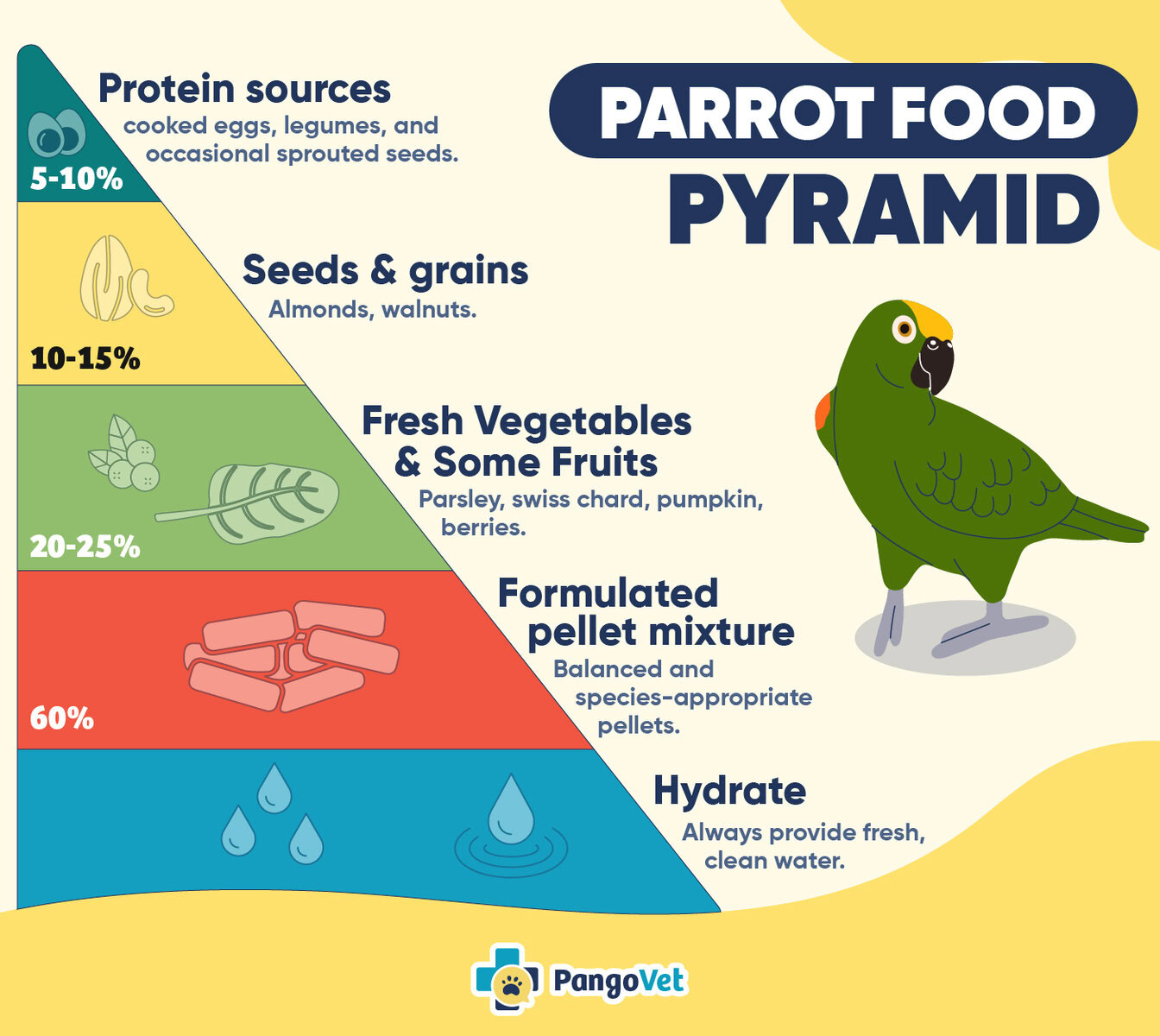
 Final Thoughts
Final Thoughts
Parrots can indeed eat apples and may even get important health benefits from them. Of course, moderation is vital, so try to avoid giving your parrot more than 5% of their diet in fruit. Also, avoid the seeds and skin of the apples because these may cause health concerns for your feathered friend. Apples are tasty snacks for your parrot overall, and they can gain great health benefits at the same time!
You may want to read:
Featured Image Credit: Lukasz Radaj, Shutterstock
